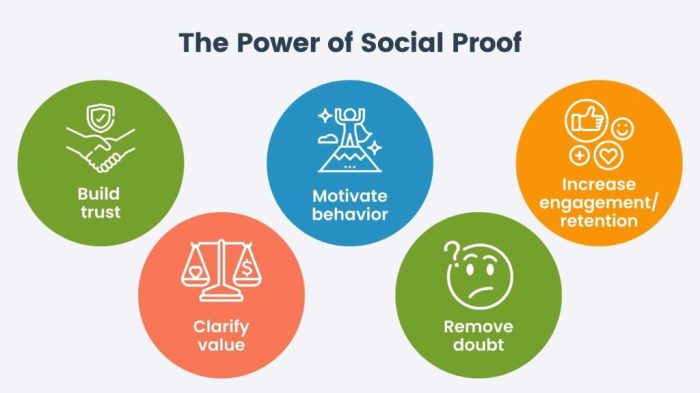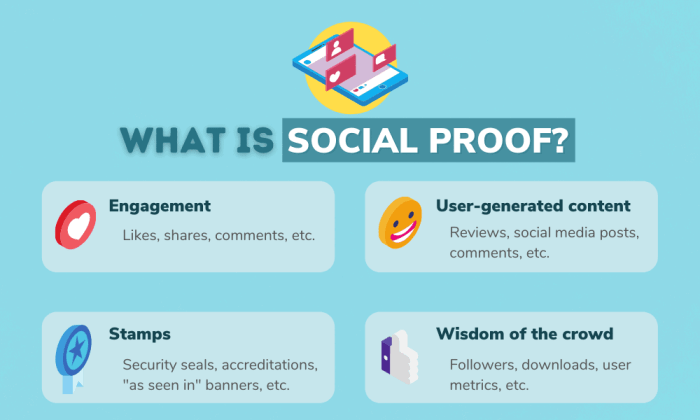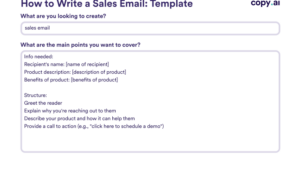Social Proof Strategies are the secret sauce to enhancing your brand’s reputation and winning over customers. From testimonials to influencer endorsements, these strategies can make or break your marketing game. Let’s dive into the world of social proof and uncover the tactics that successful brands use to influence consumer behavior.
What are Social Proof Strategies?

Social proof strategies are techniques used in marketing to influence consumer behavior by showcasing the approval and satisfaction of others. By leveraging social proof, brands can build credibility, trust, and loyalty with their target audience.
Examples of Social Proof Strategies
- Customer Reviews: Displaying positive reviews and testimonials from satisfied customers on websites or social media platforms.
- Celebrity Endorsements: Having well-known personalities or influencers promote a product or service to their followers.
- Social Media Mentions: Highlighting mentions, shares, and likes on social media posts to demonstrate popularity and engagement.
- User-generated Content: Encouraging customers to create and share content related to the brand, showcasing real-life experiences.
How Social Proof Strategies Influence Consumer Behavior
Social proof strategies play a crucial role in shaping consumer perceptions and decisions. When potential customers see positive feedback, endorsements, or recommendations from others, they are more likely to trust the brand and feel confident in making a purchase. The sense of belonging to a community of satisfied customers can also drive engagement and loyalty.
Types of Social Proof

When it comes to social proof, there are various types that companies can leverage to build credibility and trust with their audience. Let’s explore some of the most common types of social proof and how they can be effective in influencing consumer behavior.
Testimonials
- Testimonials are statements from satisfied customers endorsing a product or service.
- They are effective because they provide real-life examples of positive experiences.
- Examples: Amazon displaying customer reviews on product pages, fitness influencers sharing before and after results.
Reviews
- Reviews are feedback left by customers on platforms like Google, Yelp, or social media.
- They are influential as they offer insights into the quality and satisfaction level of a product or service.
- Examples: Yelp ratings for restaurants, TripAdvisor reviews for hotels.
Social Media Followers
- Social media followers indicate the popularity and credibility of a brand or individual.
- Having a large following can signal trustworthiness and influence purchasing decisions.
- Examples: Instagram influencers collaborating with brands, celebrities promoting products on Twitter.
Influencer Endorsements
- Influencers are individuals with a large following who promote products or services to their audience.
- Their endorsement can be highly persuasive as followers trust their recommendations.
- Examples: Kylie Jenner partnering with beauty brands, YouTubers promoting tech gadgets.
Implementing Social Proof Strategies
To effectively implement social proof strategies, businesses need to focus on collecting and leveraging customer testimonials and reviews. Incorporating social proof on websites and marketing materials can help build credibility and trust with customers.
Collecting Customer Testimonials and Reviews, Social Proof Strategies
- Encourage satisfied customers to leave reviews on platforms like Google, Yelp, or social media.
- Send follow-up emails requesting feedback and testimonials from recent customers.
- Incentivize customers to leave reviews by offering discounts or freebies.
Incorporating Social Proof on Websites and Marketing Materials
- Display customer testimonials prominently on the homepage of your website.
- Showcase star ratings and reviews next to product listings on e-commerce sites.
- Create case studies highlighting successful customer stories and outcomes.
Using Social Proof to Build Trust with Customers
- Utilize social proof in email marketing campaigns to showcase positive feedback from customers.
- Feature logos of well-known clients or partners to establish credibility.
- Include social media widgets displaying follower counts and engagement metrics.
Measuring the Impact of Social Proof
When it comes to measuring the impact of social proof strategies, businesses need to focus on key metrics and tools to evaluate their success. Understanding the importance of A/B testing in optimizing social proof elements is crucial for continuous improvement. Let’s dive into how businesses can effectively measure the impact of social proof on their conversion rates.
Key Metrics for Measuring Success
One of the essential metrics for measuring the impact of social proof is conversion rate. Businesses can track the percentage of website visitors who take a desired action, such as making a purchase or signing up for a newsletter. Additionally, monitoring engagement metrics like click-through rates, time spent on page, and bounce rates can provide valuable insights into the effectiveness of social proof elements.
Tools for Measuring Success
- Google Analytics: This tool allows businesses to track and analyze website traffic, user behavior, and conversion rates. By setting up specific goals related to social proof interactions, businesses can measure the impact of these strategies accurately.
- Social Proof Software: Platforms like Trustpilot, Yotpo, and ProveSource offer tools to monitor and analyze social proof elements in real-time. These tools provide detailed analytics on the performance of customer reviews, testimonials, and social media mentions.
Importance of A/B Testing
A/B testing, also known as split testing, plays a crucial role in optimizing social proof elements. By testing different variations of social proof, such as testimonials, ratings, and social media shares, businesses can identify which elements resonate most with their target audience. This iterative process helps in refining social proof strategies for maximum impact on conversion rates.
Case Studies on Measuring Impact
- Company A conducted an A/B test on their product page, comparing the placement of customer testimonials. By analyzing the conversion rates for each variation, they discovered that testimonials placed near the call-to-action button resulted in a 20% increase in conversions.
- Company B implemented a social proof software to display real-time notifications of recent purchases. After monitoring the impact on conversion rates, they observed a 15% uplift in sales within the first month of implementation.





